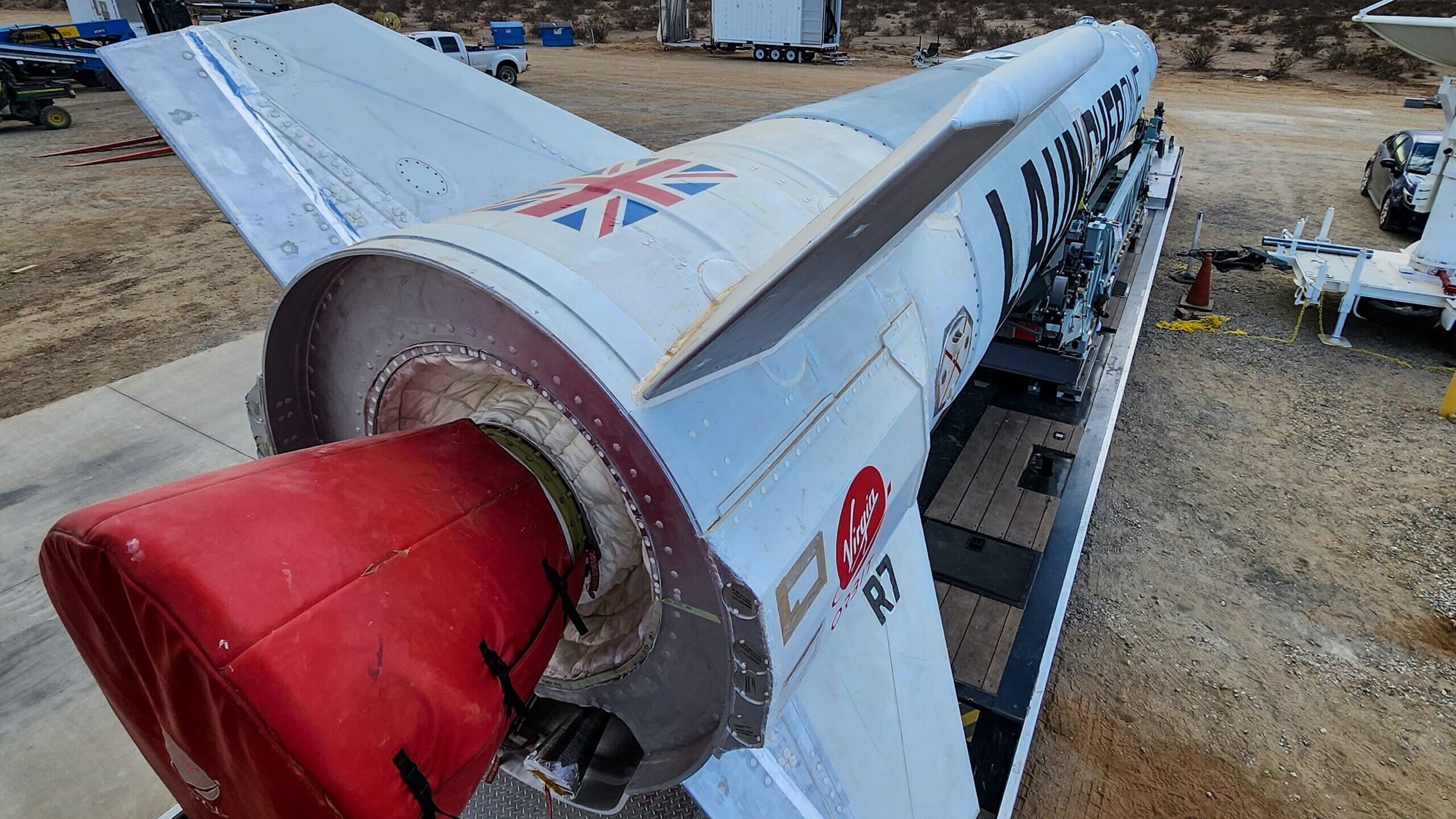
Virgin Orbit’s LauncherOne rocket will be equipped on a Boeing 747 commercial airliner before being released over UK airspace as part of the Start me Up mission. (Photo: Virgin Orbit)
Update 8:22 pm ET: After initially declaring that the launch was a success, Virgin announced that an “anomaly prevented us from reaching orbit.” This story will be updated as required when more information comes to light. The original version of this story remains below.
BELFAST — A collaboration between various US defense agencies, the UK government and Virgin Orbit has seen the launch of nine satellites from UK airspace today, taking off on the LauncherOne rocket from a modified Boeing 747 commercial airliner, more commonly known as Cosmic Girl.
The launch represents a number of firsts: the first time the UK has launched a rocket into orbit, the first Virgin Orbit launch from UK soil, and, most notably in Washington, the first time US military assets have been launched from the UK, albeit in cooperation with the UK Ministry of Defence.
Two of the nine satellites on board are “research and development” satellites designed to “demonstrate advanced space technologies for U.S. government agencies,” the US Space Force’s Space Systems Command (SSC) said in a Jan. 6 statement. Designated Space Test Program (STP)-27VP by SSC and supported by the US Naval Research Laboratory and the National Reconnaissance Office (NRO), the project represents a step forward for the Defense Department’s resilience strategy to expand the deployment of satellites from allied territories, in turn offering greater protection to US space based assets should they come under threat.
SSC elaborated that STP-27VPD will “demonstrate commercially available solutions for placing USSF satellite capabilities on-orbit from a non-traditional location” supporting US Space Force “warfighter requirements in an increasingly contested environment.”
While the NRO’s role on today’s launch was limited to acquiring launch services, the US spy agency previously collaborated with Australia on a payload launched from New Zealand using Rocket Lab’s Electron rocket.
Cosmic Girl took off from Cornwall Spaceport at approximately 5.02 ET. Once airborne, LauncherOne will to detach from under the 747’s wing and nine satellites — both civil and defense types — are headed to orbit.
The two “research and development” satellites to be used by the SSC are dual purpose, also serving the UK MoD as “experimental CubeSats” called Prometheus-2. The shoe sized spacecraft will be used by London to test radio signal monitoring, including GPS and sophisticated imaging, according to a May 2022 UK MoD statement.
“With horizontal and vertical space launch infrastructure, this will put the UK firmly on the map as Europe’s leading small satellite launch destination, providing extraordinary potential for science, technology, security and everyday services,” said Nik Smith, Regional Director UK and Europe, Lockheed Martin Space.
“With Prometheus, the intention is that it will eventually be part of a larger constellation, and they [UK Space Command] will start acquiring data and start understanding how they can operate it,” said Michael Holden, space advisor for Defence Security International Exhibition (DSEI), a UK based military trade show. “So everything from the launch to the operation of the satellite is kind of uncharted territory here.”
Similarly, the Cosmic Girl launch means the UK Space Command won’t have to “ask anyone’s permission” or rather rely on a foreign partner for future satellite launch operations, according to Holden.
He added that the approach for the Start Me Up mission from a defense perspective aligns with the UK’s “own, access, collaborate” framework included in the 2022 Defence Space Strategy. The framework has been introduced to identify which sovereign space capabilities it should acquire, those that commercial companies can provide and opportunities for partnership with other countries.
Iran says it shot down Israel’s attack. Here’s what air defense systems it might have used.
Tehran has been increasingly public about its air defense capabilities, including showing off models of systems at a recent international defense expo.


























